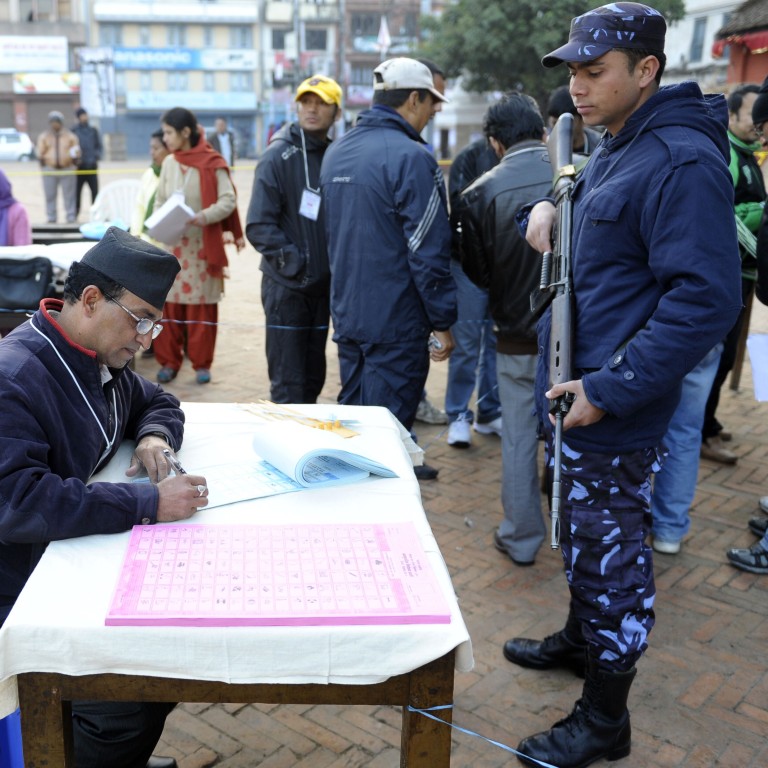
Millions of Nepalis defy threats and vote for assembly to write constitution
Polling stations opened for second vote since civil war ended in 2006
Millions of Nepalis defied low expectations and threats of violence to vote yesterday in elections seen as crucial in stabilising the country and breaking its political deadlock seven years after a civil war ended.
A bombing in the capital Kathmandu early yesterday injured three children, but the explosion and a campaign of intimidation by a hardline Maoist splinter group did not prevent the turnout reaching at least 65 per cent.
At this level it would be higher than the 63.29 per cent turnout recorded during the country's first post-war elections in 2008, when it voted for a constituent assembly tasked with writing a new constitution.
Nepalis were choosing a special assembly to draw up a long-delayed constitution, a step towards stability in a country still reeling from a 10-year communist revolt and the overthrow of a centuries-old monarchy.
Opposition activists who do not recognise Nepal's interim government vowed to disrupt the polls, and at least 30 people were wounded in small bomb blasts and other violence in the run-up to the election.
Police official Hemant Pal said that yesterday's bomb went off outside a busy polling station in the heart of Katmandu, seriously wounding the boy, who was reportedly named Samin Khadki.
"This eight-year-old boy was playing with his friends in the neighbourhood when he picked up the bomb, assuming it was something to play with," Pal said.
The boy's uncle, Uttam Shahi, said the child was knocked unconscious and was likely to lose several fingers.
Two young women suffered minor injuries in the blast.
In Chamundu village, about 400km west of Kathmandu, opposition activists stormed into a polling station and ripped up ballot papers, said Homnath Thapaliya, the area's chief government administrator. He said police fired in the air and about a dozen voters suffered bruises.
Candidates from more than 100 political parties competed in the vote. The assembly will double as the parliament and choose a government.
But analysts say none of the political parties is likely to get a majority, which could keep the country in a state of paralysis.
"We can only hope that the politicians will come to their senses and put the country's interest before their own," said Ranju Singh, a university student.
The last Constituent Assembly was elected in 2008, following a 10-year Maoist insurgency and the overthrow of the monarchy. But it was riven by infighting and never finished its work.
The result is a power vacuum that has left Nepal without a proper constitution for nearly seven years.
